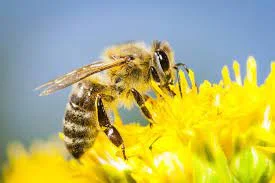Recent research published in the PLOS One peer-reviewed scientific journal has revealed a disturbing rise in species on the brink of extinction.
This figure, now estimated at about two million, is twice the 2019 estimates of the United Nations Environment Program. The significant rise is primarily attributed to the inclusion of more comprehensive insect data, indicating a higher extinction risk than previously assumed.
The study, led by Professor Axel Hochkirch of Luxembourg's National Museum of Natural History, emphasizes the alarming decline in global biodiversity. This decline encompasses a range of species, including plants and vertebrates, signaling a more severe crisis.
Hochkirch lays bare how critical a condition insects are in, stating: “What our study does is really highlight that insects are as threatened as other taxa. And because they are the most species-rich group of animals on our planet, this is really something which should be tackled.”
Invertebrates comprise 97 percent of the animal kingdom, with insects accounting for approximately 90 percent, and play vital roles in our ecosystem. These roles include waste decomposition, pollination, and soil nutrient recycling.
- The study’s findings are worrying because, as Hochkirch points out: “Without insects, our planet will not be able to survive.”

No comments:
Post a Comment
Only News